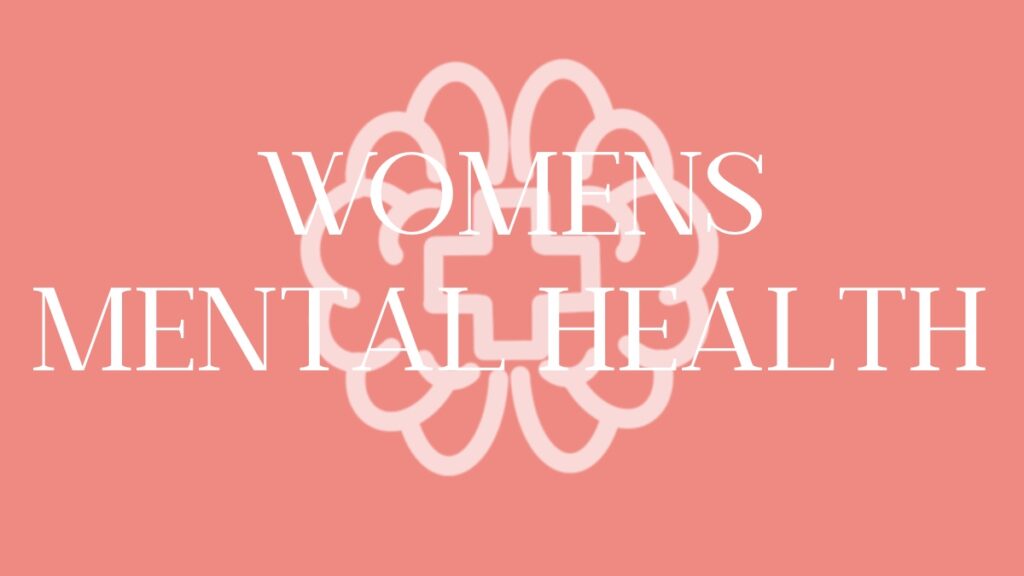Mental ill health among women is increasing. One in five women (19%) experience a common mental health disorder, such as depression or anxiety. There is clear evidence to show that women’s mental health is linked to experiencing some form of violence and abuse.

Black, Asian and minority ethnic women face more inequalities and additional challenges to their mental health due to racism and stigma, which can have a detrimental affect on their mental health.
One example of how racism can affect mental health is through micro-aggressions. Some examples of micro-aggressions are as follows:
- Being asked ‘‘where are you really from?’’
- Being mistaken for someone else of the same race
- Been told ‘’you don’t sound black’’ or ‘’you don’t act black’’
- People assuming that because of your race, English isn’t your first language
Black Lives Matter Movement
Whilst the black lives matter movement is an incredible movement for change, people often don’t consider the effects of hearing racism and viewing racist behavior and the impact this can have on black and mixed heritage peoples mental health.
Compared to white women, black women are more likely to experience a mental health disorder such as depression or anxiety disorder. In fact, black women are four times more likely to be detained under the mental health act, yet are less likely to receive the appropriate treatment and tend to have less successful outcomes. If you or anyone else you know of is experiencing depression or mental illness due to their ethnicity, it is important to document and report this, racism or discrimination is not okay and should never be tolerated.
Women and mental health facts:
- 1 in 12 women will become alcohol dependent during their lives.
- Women are twice as likely than men to suffer with anxiety disorders
- Twice as many women will attempt suicide than men
- Women are twice as likely than men to experience PTSD(post-traumatic stress disorder).
Postpartum depression and Antenatal depression
Many women will experience antenatal depression, with symptoms ranging from panic attacks, anxiety and even psychosis.
It is important to express any concerns to your midwife or GP as soon as any symptoms start to show to get you the help as soon as possible.
Postpartum depression is extremely common, affecting more than one in ten women within the first year after giving birth. Although more common in women, it can also affect fathers or partners too.
Postpartum depression is very serious and even sometimes life threatening. It is crucial to speak to a healthcare professional immediately once you feel any symptoms arise. If you feel like you are in need of immediate, emergency attention, dial 999.
Postpartum depression and Antenatal depression are very common, but that doesn’t mean its easy to go through or experience. You are never alone, there are many websites dedicated to help women suffering. Always remember to talk to someone about your difficulties, even if it’s a close friend or relative. Many midwives and health visitors are trained to spot the symptoms of postnatal depression, if they cannot help, they will certainly put you in the direction of someone who can.
Signs and symptoms to look out for:

- Feeling sad and anxious
- Sleeping too much or too little
- Irritation or anger for no apparent reason
- Difficulty concentrating
- Sudden mood changes
- Feeling disconnected from your baby/trouble bonding
- Feelings of hopelessness, guilt and worthlessness
- Unexplained illness, aches and pains
- Memory issues
- Not enjoying things you once found enjoyable
- Recurrent thoughts of suicide or death
- Eating too much or too little
Causes
- Emotional issues such as stress between partners or family is a potential factor contributing towards postpartum depression.
- It can be a combination of factors including environmental, emotional, hormonal or genetic factors. Sleep deprivation may increase the chances or even be the cause of the condition.
- Having little to no help and support with your newborn
- Complications during childbirth
- Stressful events during pregnancy
- A family history of depression
- Drug use
- Drop in hormone levels after childbirth
Prevention
- If you have a family history of depression, consult with your GP or midwife during pregnancy
- Avoid alcohol or too much caffeine during and after pregnancy
- Surround yourself with positive people during and after pregnancy
- Talk to your midwife or GP about any concerns as soon as they show
Complications
- Getting early help can prevent chronic depression
- Increased chance of recurring depression
- Can affect the psychological development of the child
- Patient could develop suicidal tendencies
The birth of a baby can trigger numerous emotions including happiness, fear and anxiousness. It is normal to experience all different kinds of emotions, don’t be hard on yourself, but do reach out for help if you are struggling.
Complications
On March 11th 2020, a global pandemic was officially declared. The corona virus. This impacted so many lives for so many different reasons. Mental health being a major concern among st so many people. According to research, the fatality rate among men has been twice as high as women, however, the pandemic has affected more women’s mental health than men. Many problems relating to women’s mental health during the pandemic was family related. Schools being closed added extra stress to mothers who had to home school, whilst still trying to maintain normality within home life. As imaginable, this has been extremely difficult for many mothers globally. Covid-19 has also increased depression and anxiety in pregnant and postpartum women, studies show.
Self-care
Self-care is so important for your mental and physical health. There are many different forms of self-care. You might take time out to read a good book, exercise, sing, play an instrument, do your hair, makeup or even a skin care routine. Whatever you enjoy doing most, it is crucial to remember to take time out to do something you find exciting or love doing. It is never selfish to think about yourself and your own wellbeing.
An inspiring quote to go by:
‘Courage does not always roar. Sometimes courage is the quiet voice at the end of the day saying, ‘I will try again tomorrow’’.’ – Mary Anne Radmacher



